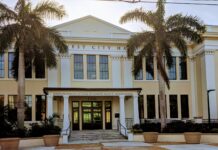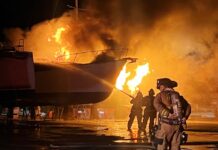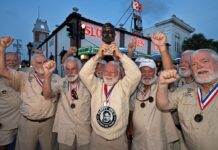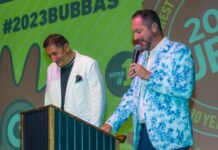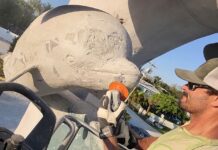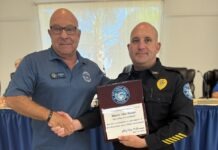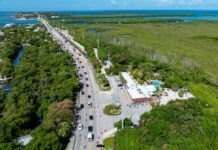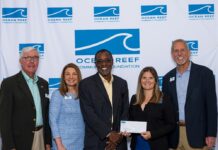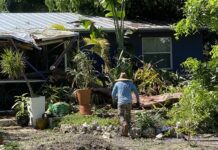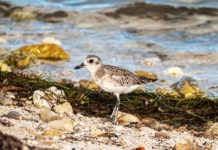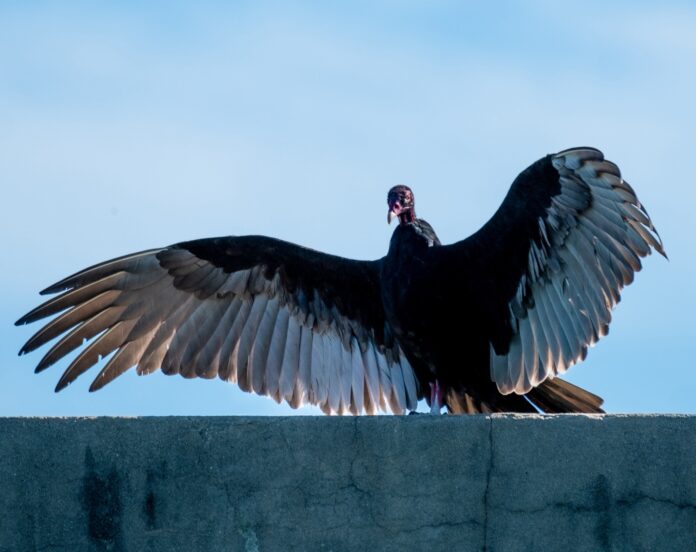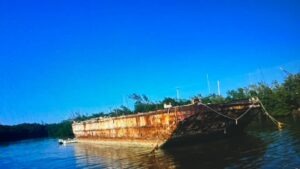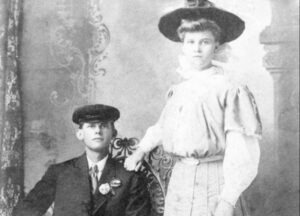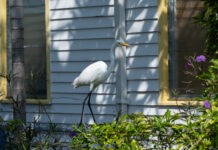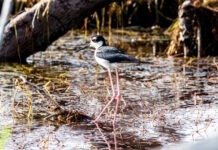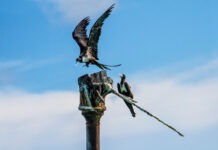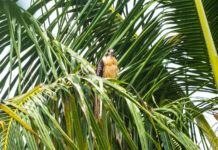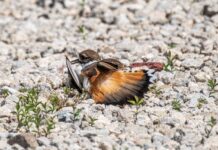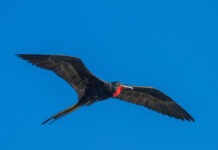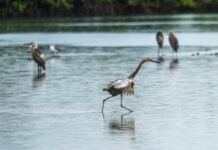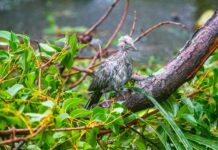I bounced off of Tom McGuane’s novel “Panama” the first couple times I tried to read it. It seemed arrhythmic, and fraught with a preternatural diction that lost me. I just couldn’t hit a groove.
Then one day I was heading to South Florida for the first time, and I slid the slim volume in a jacket pocket to give it one last try. I started it in the airport and got so engrossed I almost missed the call for my flight. It was the story of a reprobate rock star whose career had collapsed so he’d come back to his hometown – Key West – in a 1970s version of shame. The book was actually pretty punk rock, not in the sense of low production values and minimal audience, but in the way its narrator caromed around the world, seeking mishap and barreling through social norms, a combination of wounded and aggressive and generally [screwed] up. The story had a lot of unrequited love, as well as fraught and complicated familial relations, and it was deeply funny. So yeah, it spoke to me.
“Panama” was only 175 pages long. I finished it as the plane was landing in West Palm Beach and decided it was the best book ever. (It’s still top 10. Maybe top five.)
My ex-girlfriend picked me up with her new boyfriend and told me we were going to Key West for the weekend. I remember getting stuck in traffic on the 18 Mile Stretch, looking for alligators in the canals and hearing Prince’s “Sign of the Times” for the first time. (“In France, a skinny man died of a big disease with a little name…”) We ate a terrible dinner at Rumrunners, then wandered around for a long time, trying to find the ocean, and failing.
I moved here a couple years later. “Panama” wasn’t about my Key West era – it was published in 1978 – but it’s a lens I’ve long viewed the island through, largely because it presented this place not as some boring warm-weather idyll, but as a living, breathing place rife with natural beauty, but also a lot of weird cultural undercurrents, a heavy dose of mischief, and a never- ending font of low-grade tropical seediness. In short, a place with possibilities.
All of which is why it was so great to be among those in the packed house at the San Carlos Institute last Friday night for the screening of “All That Is Sacred” during the Key West Film Festival. The movie is a short documentary about the literary/fishing world of Key West in the 1970s, featuring such people as McGuane, his friends Richard Brautigan, Jim Harrison and Guy de la Valdene, all of whom have died, as well as McGuane’s future brother-in-law Jimmy Buffett, who died the day of the film’s premiere at the Telluride Film Festival.
McGuane has, reluctantly I believe, been left as the last man standing.
There was a panel discussion afterwards, and McGuane was what you’d hope he’d be, funny, insightful and acerbic. Then the power went out, at which point McGuane continued to be funny, insightful and acerbic, but without amplification. People in the front row held up the flashlights on their phones to light McGuane and the filmmakers. The crowd hushed so you could hear, everyone leaning forward in their seats a bit. It was one of those beautiful Key West moments, but also a throwback to McGuane’s time here, when reliable electricity was far less assured. (My favorite learned fact of the evening: Jim Harrison stole the title “Legends of the Fall” from a story in progress on McGuane’s desk.)
Of course, the other difference between the 1970s and now was the fact that everyone knew almost immediately what had caused the power to go out because it was on social media. The story was that a turkey buzzard, properly called a turkey vulture, had been electrocuted, thus causing the outage. Keys Energy Services, our power company, posted a notice on Facebook with a stock photo of a TV.
Because it was on social media, of course, things quickly got somewhat polarized and fractious, with some people believing this was a made-up excuse so Keys Energy could blame the outage on a poor dead animal. This was bolstered by the notion that turkey vultures don’t fly at night.
Hmmm.
Turkey vultures have what is known in the birdwatching trade as a low wing load. Basically, they don’t have to do much to stay aloft. This fits in with their lifestyle, which is essentially to fly around all day looking – or sniffing – for dead things to eat. They rely on vigilance and time in the air. If they had to flap all day to stay aloft it would be inefficient and exhausting. So they have wings with a high aspect ratio – meaning they are long and skinny-ish – and kind of bump upward into a low V. Basically they are built to glide. It makes them graceful, effortless fliers, but not muscular fliers. They are thought to rarely complete more than 10 wingbeats in a row, unless performing what is known as a “follow flight” during mating season – but those rarely last more than a minute.
To glide, though, a bird needs to gain altitude, and for that, TVs rely either on rising hot air thermals or wind – though it was only blowing three to six knots last Friday.
Thermals tend to build up in the late morning, after the sun heats things up, and then drop off when the sun sets. Hence the belief that they don’t fly after dark. But thermals don’t disappear as if someone threw a switch. They diminish over a period of time, like a deflating air mattress, especially in places with a lot of paved surfaces, like our fair island city.
According to studies, turkey vultures may not come in to roost for the evening until half an hour after sunset. The McGuane event started at 5:30 p.m. The movie lasted 32 minutes. Sunset was at 5:39. Also, the bird could have been sitting on top of one of the poles for some time before brushing a wing across a wire, closing the circuit and causing sparks to fly.
A turkey vulture being the cause of the outage was well within the realm of possibility. If you’re going to make up a reason for a power outage, everyone knows the best culprit to blame would be an iguana. No one would question you for a second.
Anyhow, I recommend reading “Panama” if you haven’t. If you have, maybe consider reading it again. I think I’m going to go do that right now.
